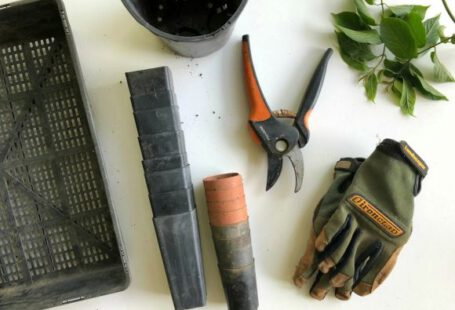Watering herb plants can be a bit tricky, as different herbs have different water requirements. Some herbs prefer dry soil while others thrive in moist conditions. To keep your herb garden healthy and thriving, it is important to understand how often to water your herb plants. In this article, we will discuss some general guidelines for watering herb plants and provide tips to help you determine the watering needs of your specific herbs.
Understanding the Watering Needs of Herb Plants
Before we dive into the specifics of watering herb plants, it is important to understand the natural habitat and water requirements of different herbs. Herbs, like any other plant, have evolved to grow in specific environments with their own unique moisture levels. Some herbs, such as rosemary and lavender, originate from Mediterranean regions and prefer drier soil. On the other hand, herbs like basil and parsley prefer consistently moist soil.
General Guidelines for Watering Herb Plants
While each herb has its own specific watering needs, there are some general guidelines you can follow to ensure the health of your herb garden. Here are a few tips to keep in mind:
1. Check the Soil Moisture: Before watering your herbs, always check the moisture level of the soil. Stick your finger about an inch into the soil – if it feels dry, it’s time to water. If it feels moist, it is best to wait a little longer.
2. Water Deeply: When watering your herbs, make sure to water deeply. This encourages the roots to grow deeper into the soil, resulting in more resilient and healthy plants. Avoid shallow watering, as it can lead to weak root systems.
3. Avoid Overwatering: Overwatering is one of the most common mistakes made when caring for herb plants. Excessive moisture can lead to root rot and other fungal diseases. Always allow the soil to dry out slightly between waterings to prevent overwatering.
Determining the Watering Needs of Specific Herbs
Now that we have discussed some general guidelines, let’s take a closer look at the watering needs of specific herbs:
1. Rosemary: Rosemary prefers well-drained soil and should be watered deeply once the top inch of soil feels dry. Be careful not to overwater, as rosemary plants are susceptible to root rot.
2. Basil: Basil prefers consistently moist soil and should be watered when the top inch of soil feels slightly dry. Avoid letting the soil dry out completely, as this can cause the leaves to wilt.
3. Mint: Mint prefers moist soil and should be watered when the top inch of soil feels slightly dry. However, be cautious not to overwater, as mint plants are prone to root rot.
4. Thyme: Thyme prefers slightly dry soil and should be watered when the top inch of soil feels dry. Avoid overwatering, as thyme plants are susceptible to root rot.
5. Parsley: Parsley prefers consistently moist soil and should be watered when the top inch of soil feels slightly dry. Avoid letting the soil dry out completely, as this can cause the leaves to wilt.
Conclusion: Finding the Balance
In conclusion, the watering needs of herb plants vary depending on the specific herb and its natural habitat. It is important to understand the moisture requirements of your herbs and adjust your watering schedule accordingly. Remember to check the soil moisture regularly, water deeply, and avoid overwatering to keep your herb garden healthy and thriving. By finding the right balance of watering, you can ensure that your herb plants receive the moisture they need to grow and flourish.





